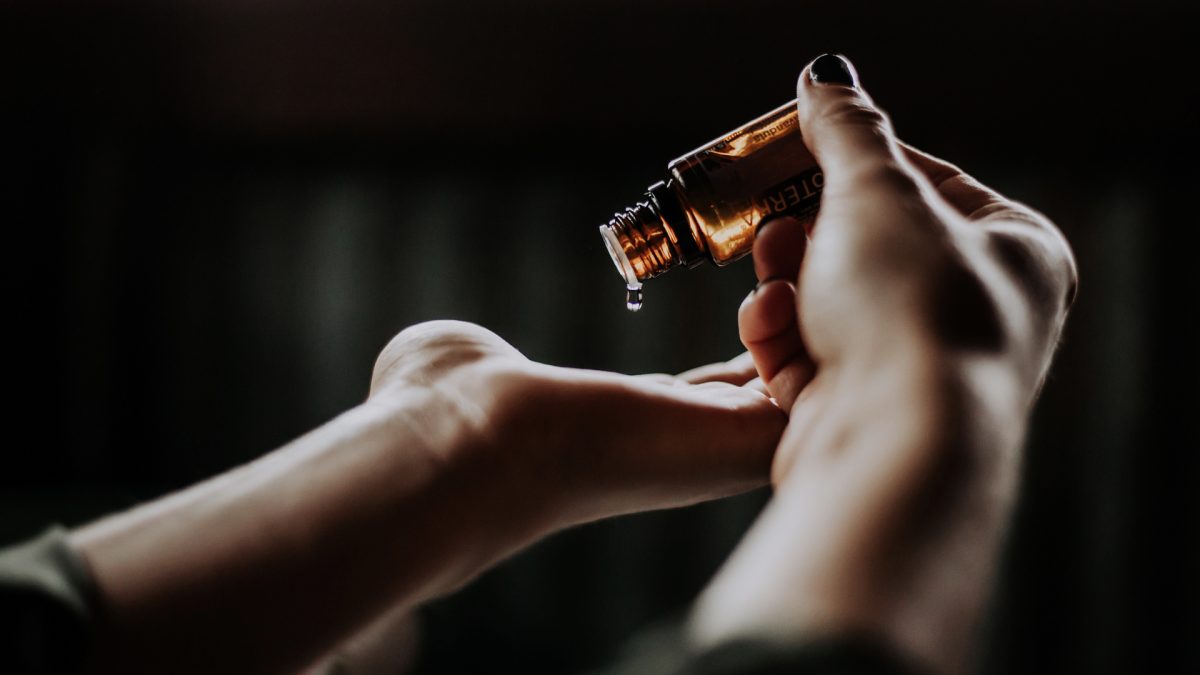Peppermint was not “officially” discovered until 1696, but we’ve probably been using it for thousands of years. After-dinner mints are used to reduce the “gastrocolic reflex,” the urge to defecate following a meal. The stretching of nerves in the stomach triggers spasms in the colon, which makes sense because it allows us to make room for more food coming down the pipe. Peppermint, like in our after-dinner mints, relaxes the colon’s muscles. I explore this in my video What to Take Before a Colonoscopy.
When researchers took circular strips of human colon removed during surgery and laid them out on a table, they spontaneously contracted on their own about three times per minute. Isn’t that kind of creepy? But when more and more menthol from peppermint was dripped on them, the contractions still occurred but were not as strong.
If peppermint can relax the colon and reduce spasms, might it be useful during a colonoscopy, as first suggested 30 years ago? Colonic spasms can hinder the progress of the scope and cause the patient discomfort. So, researchers sprayed peppermint oil on the tip of the scope, and, in every case, the spasm was relieved within 30 seconds. Thirty seconds, however, is a long time when you have a scope snaking inside your colon. The next innovation was to use a hand pump to flood the entire colon with a peppermint oil solution before the colonoscopy, which caused the spasming colon to open up within 20 seconds. This is a simple, safe, and convenient alternative to injecting an anti-spasm drug, which can have an array of side effects.
Researchers saw similar results during upper endoscopy, with peppermint working better, quicker, and safer than drugs. Another study also found positive results when peppermint was mixed into barium enemas. But wouldn’t it be easier just to swallow some peppermint oil instead of squirting it up the rectum? Researchers looked at this alternative in a study using premedication with peppermint oil before colonoscopy. Just popping a few peppermint oil capsules four hours before the procedure sped up the entire process. Both doctor and patient satisfaction increased, because reducing colon spasms can reduce pain and discomfort as well as make the scope easier to insert and withdraw.
Pain and discomfort are not the only barriers to signing up people for colonoscopies, however. Even if peppermint oil makes the procedure go seamlessly, there’s still the dreaded bowel prep where you have to drink quarts of a powerful liquid laxative to completely clean you out before the colonoscopy. And, aside from the pain, there are also fears of complications and feelings of embarrassment and vulnerability.
Serious complications occur in about 1 in every 350 colonoscopies, including really serious complications like perforations and bleeding to death. Perforations can occur when the tip of the scope punches through the wall of the colon or when the colon is inflated too much while the doctor is pumping in air to look around. It can also happen while trying to cauterize bleeding caused by something like a biopsy. In extremely rare instances, this cauterization can ignite some residual gas and cause the colon to explode.
Death from colonoscopy is rare, occurring only in about 1 in every 1,000 procedures. But with about 15 million colonoscopies performed annually in the United States, colonoscopies may kill about 15,000 Americans every year. This raises the question whether the benefits outweigh the risks? I was shocked to find out how risky colonoscopies are, but dying from colon cancer is no walk in the park either. There’s got to be a better way, and I cover that topic in my Should We All Get Colonoscopies Starting at Age 50? video.
See more on iatrogenic (doctor-induced) risks of various medical procedures in my videos:
- Cancer Risk from CT Scan Radiation
- Do Dental X-Rays Cause Brain Tumors?
- Why Prevention Is Worth a Ton of Cure
- How Doctors Responded to Being Named a Leading Killer
You can also learn more about the benefits of all kinds of mint in these videos:
- Antioxidants in a Pinch
- Reducing Radiation Damage with Ginger and Lemon Balm
- Enhancing Athletic Performance with Peppermint
- Peppermint Aromatherapy for Nausea
- Peppermint Oil for Irritable Bowel Syndrome
And what about preventing colon cancer in the first place? See:
- Starving Cancer with Methionine Restriction
- Turmeric Curcumin and Colon Cancer
- Phytates for the Prevention of Cancer
- Stool pH and Colon Cancer
- Solving a Colon Cancer Mystery
- Putrefying Protein and “Toxifying” Enzymes
- Resistant Starch and Colon Cancer
- Gut Dysbiosis: Starving Our Microbial Self
In health,
Michael Greger, M.D.
PS: If you haven’t yet, you can subscribe to my free videos here and watch my live, year-in-review presentations:
- 2012: Uprooting the Leading Causes of Death
- 2013: More Than an Apple a Day
- 2014: From Table to Able: Combating Disabling Diseases with Food
- 2015: Food as Medicine: Preventing and Treating the Most Dreaded Diseases with Diet
- 2016: How Not To Die: The Role of Diet in Preventing, Arresting, and Reversing Our Top 15 Killers
